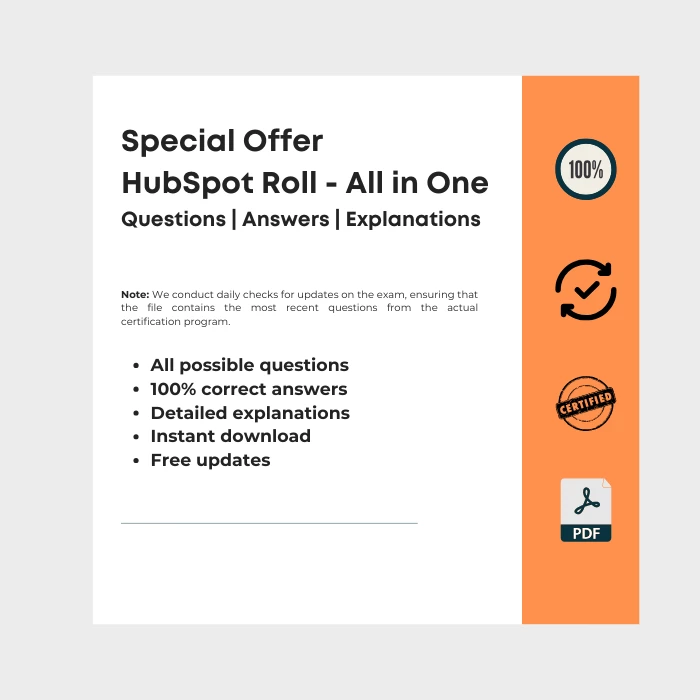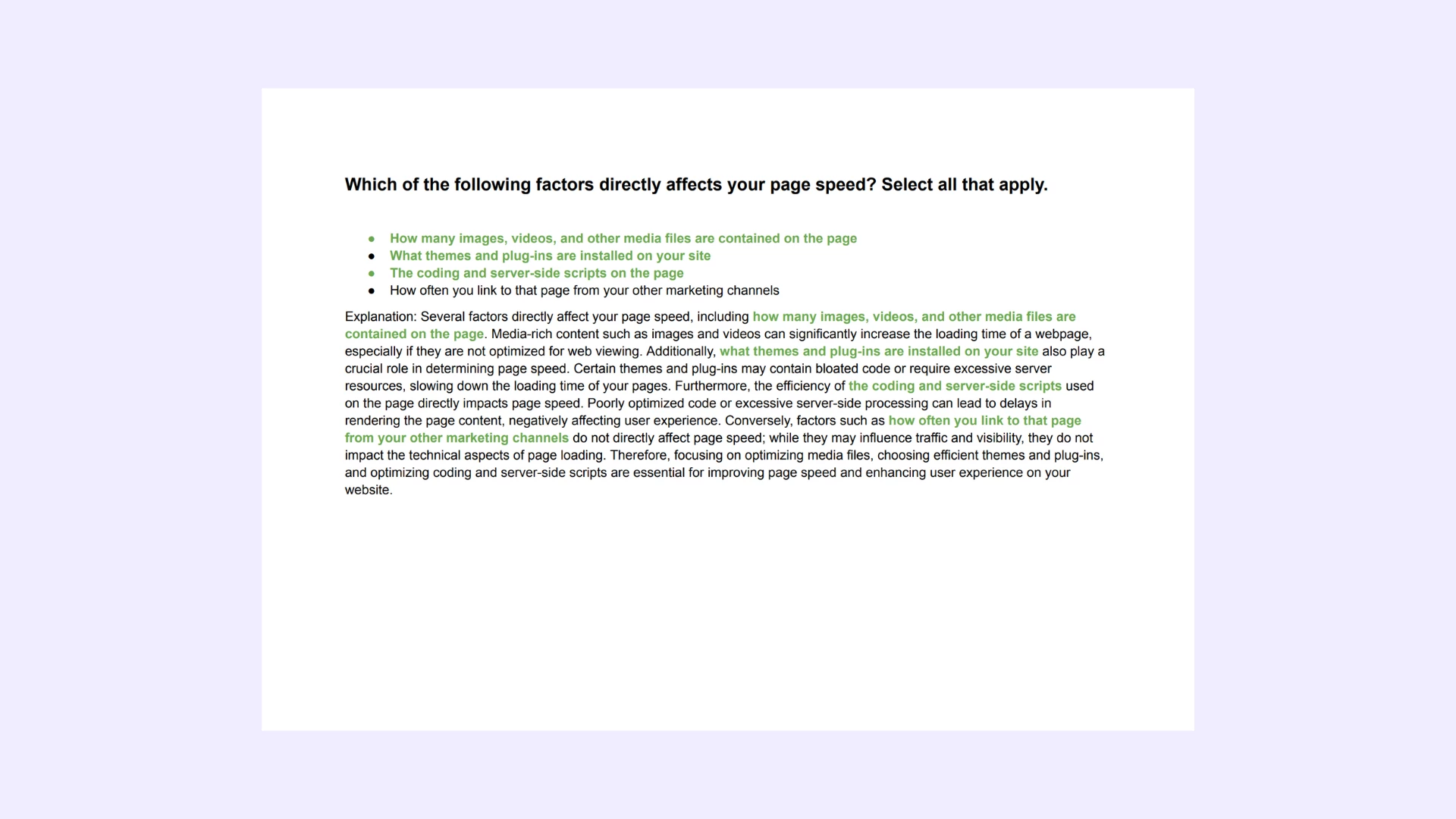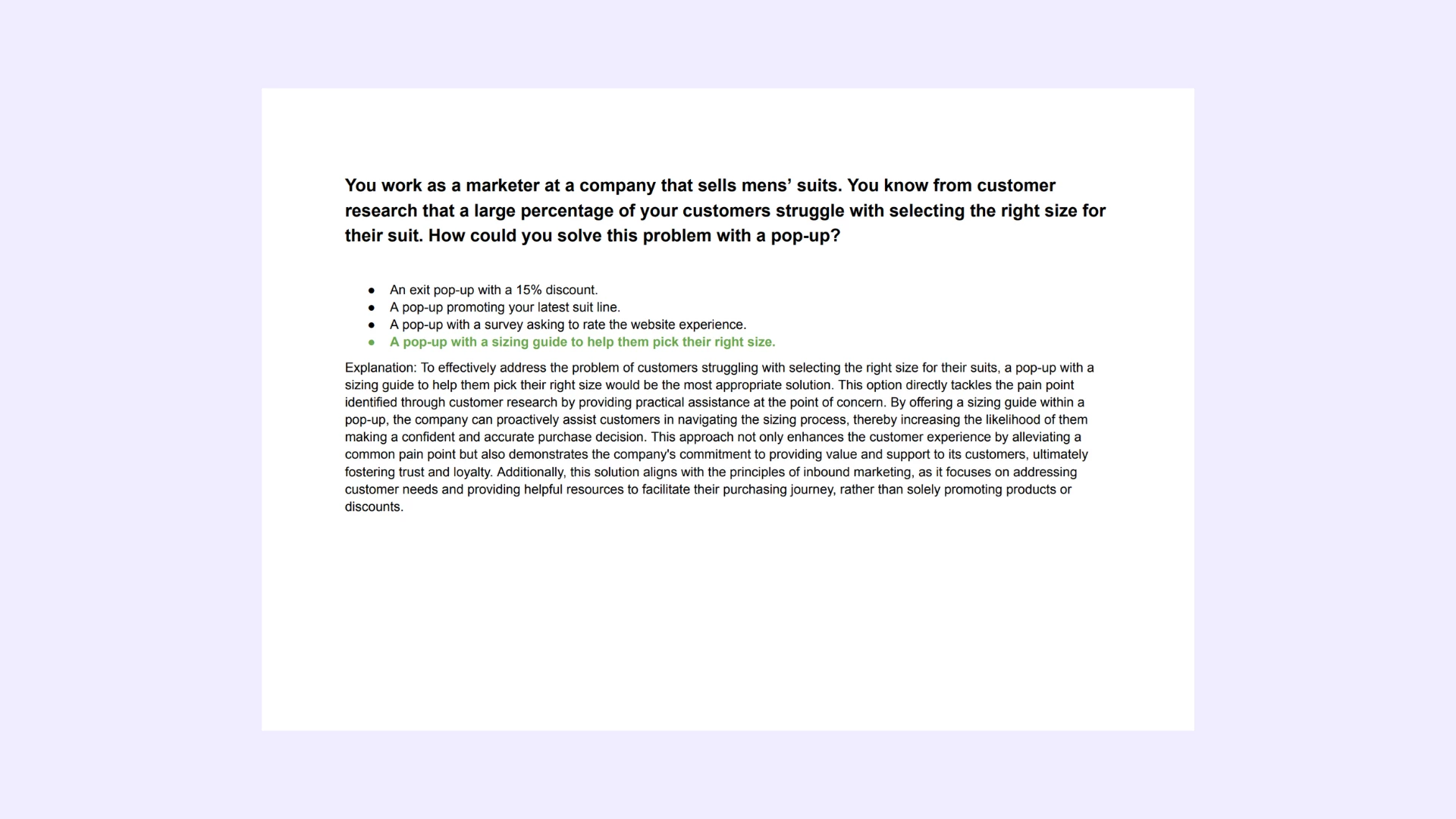Fill in the blank: Once a search engine bot discovers your web page, it _______.
checks to see if the content is unique from its database of content
checks to see if it can read all forms of media included within the page
decides how relevant it is to certain search queries by indexing it based on signals like keywords used within it
adds a cookie to it to come back later if it intends to rank it in the top 100

HubSpot Roll. Includes Answers for Every Real HubSpot Certification Exam.
All-in-One: Get all HubSpot exams answers with explanations in one bundle. This package includes answers for every current HubSpot certification. Regular updates to reflect the latest exam version. -> See what's included.


Need a single cerification exam answers? Check out our -> list of certification exams answer keys. Learn Smarter. Obtain or Renew your certificates with peace of mind!
Explanation: Fill in the blank: Once a search engine bot discovers your web page, it _______.
Explanation: The correct answer is **decides how relevant it is to certain search queries by indexing it based on signals like keywords used within it**. Once a search engine bot discovers a web page, it initiates the process of indexing, wherein it evaluates the page's content and relevance to specific search queries. Indexing involves analyzing various signals, including keywords, metadata, and contextual relevance, to determine how well the page aligns with user search intent. By assessing these signals, search engine bots categorize and store the page in their index, making it eligible to appear in search results for relevant queries. This indexing process is essential for search engines to deliver accurate and relevant search results to users, ensuring that web pages are appropriately matched to user queries based on their content and relevance. Therefore, recognizing that search engine bots decide a page's relevance to certain search queries by indexing it based on signals like keywords used within it is crucial for understanding how search engines rank and display web pages in search results.

Special Bundle Offer HubSpot Roll. All in One
Note: We conduct daily checks for updates on the exam, ensuring that the file contains the most recent questions from the actual certification program.
Questions | Answers | Explanations. FREE Updates.
You may also be interested:
- Special HubSpot bundle offer - all HubSpot exams in one
- HubSpot CMS for develpers certification exam answers
- HubSpot CMS for develpers II certification exam answers
- HubSpot content hub for marketers certification exam answers
- HubSpot content marketing certification exam answers
- HubSpot contextual marketing certification exam answers
- HubSpot digital advertising certification exam answers
- HubSpot digital marketing certification exam answers
- HubSpot email marketing certification exam answers
- HubSpot frictionless sales certification exam answers
- HubSpot growth driven design certification exam answers
- HubSpot inbound certification exam answers
- HubSpot inbound marketing certification exam answers
- HubSpot inbound marketing optimization certification exam answers
- HubSpot inbound sales certification exam answers
- HubSpot integrating with HubSpot I foundations certification exam answers
- HubSpot marketing hub software certification exam answers
- HubSpot reporting certification exam answers
- HubSpot revenue operations certification exam answers
- HubSpot sales enablement certification exam answers
- HubSpot sales hub software certification exam answers
- HubSpot sales management certification exam answers
- HubSpot sales software certification exam answers
- HubSpot seo certification exam answers
- HubSpot seo II certification exam answers
- HubSpot service hub software certification exam answers
- HubSpot social media marketing certification exam answers
- HubSpot social media marketing II certification exam answers